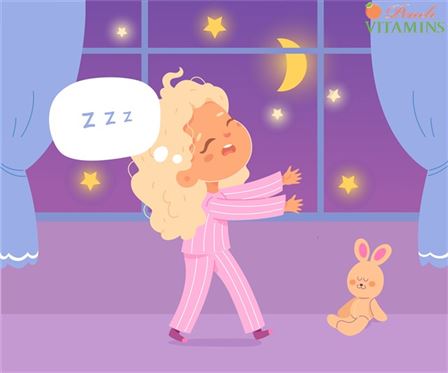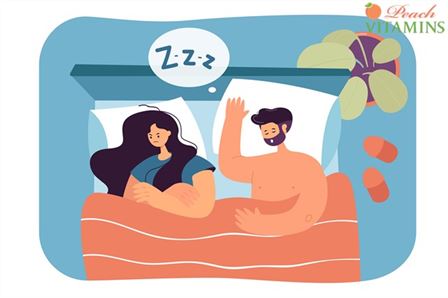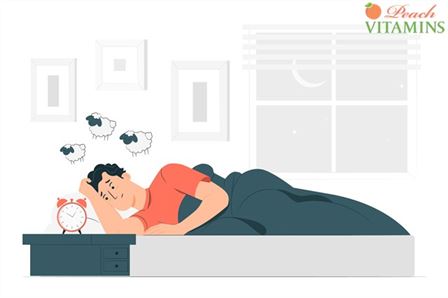Snoring is a common problem faced by millions of people around the globe. Although snoring is usually harmless, it can cause sleep deprivation, stress, anxiety, and even depression. The good news is that there are some natural remedies for snoring in Ayurveda that you can try at home.
Snoring is defined as the sound produced when air passes through the mouth while breathing. This may occur due to obstruction caused by enlarged tonsils, nasal congestion, or a deviated septum.
Ayurveda is a system of medicine that originated in India over 5000 years ago. It has become very popular because of its holistic approach to health care. Ayurveda focuses on treating the whole person rather than just focusing on specific symptoms.
There are several ways to treat snoring naturally using Ayurvedic herbs. These include herbal oils, powders, and teas that help relax the throat muscles and reduce excess mucus. There are also certain lifestyle changes that you can make to improve your breathing during sleep.

Why Do People Snore?
Snoring is a common problem among adults and children alike. The cause of snoring varies from person to person. Some people snore because they sleep with their mouth open, others because they’re overweight, and some because they suffer from obstructive sleep apnea (OSA).
Some people snore because they have a large tongue, others because they have a small throat, and still others because they have a weak jawbone.
Whatever the reason, snoring is usually harmless unless it becomes chronic. However, there are remedies for snoring in Ayurveda.
Is There a Home Remedy to Treat Sleeplessness According to Ayurveda
Ayurveda is a traditional Indian system of medicine based on the belief that everything in nature is alive and conscious. This includes plants, animals, minerals, and humans.
According to Ayurveda, there are several causes of sleeplessness:
1) Vata Dosha (Vata means air/wind). Vata dosha is responsible for movement, speech, hearing, smell, taste, touch, and sight.
2) Pitta Dosha (Pitta means fire/heat). Pitta dosha is responsible for metabolism, digestion, excretion, elimination, and reproduction.
3) Kapha Dosha (Kapha means water/watery). Kapha dosha is responsible for growth, strength, tissue formation, and blood circulation.
4) Rakta Dhatu (Rakta dhatu means blood). Rakta dhatu is responsible for immunity, skin, bones, teeth, hair, nails, and reproductive organs.
There are many remedies for snoring according to Ayurveda. The most common remedy is to take a warm bath at night. Warm baths help reduce excess kapha dosha, which leads to sleepiness.
Another remedy is to eat foods rich in iron, such as red meat, eggs, and spinach. Iron helps build strong blood vessels, which reduces snoring.
Finally, try taking a hot shower before bedtime. Hot showers help eliminate toxins from the body, which may lead to sleepiness.

Are There Any Ayurvedic Remedies for Relieving Stress?
This means that when we feel stressed out, our mind and body become imbalanced. And when our bodies are imbalanced, we experience symptoms such as headaches, insomnia, and fatigue.
There are many ways to relieve stress using Ayurvedic remedies. However, you don’t need to spend thousands of dollars on expensive treatments. Instead, try these simple tips to ease stress naturally.
Men Whose Snoring at Night Interferes With Their Partner’s Sleep, What Do You Do to Remedy the Situation
Snoring is a common problem among men whose snoring interferes with their partner’s sleep. While there are many remedies available to treat this condition, some men find that these methods don’t work well enough.
One remedy is to use a nasal spray called Nasal Strips. These strips contain a numbing agent that helps reduce the amount of mucus produced by the nose. This reduces the pressure inside the nose, making it easier to breathe through the mouth. The strips are applied directly to the nostrils and left overnight. They’re effective for most cases of mild to moderate snoring.
Another option is to try a custom-made oral appliance. An oral appliance is a device that fits over the tongue and pushes it forward, reducing the airway passage. Oral appliances are designed specifically for each patient and are made from soft plastic or metal. They can be used alone or combined with other treatments.
If none of these options works, consider getting treatment from a doctor who specializes in treating sleep disorders.

Shankapushpi
Shankapushpi is a herb used in Ayurvedic medicine. It helps reduce snoring and sleep apnea. Shankapushpi contains salicylic acid, which reduces inflammation and swelling in the throat.
This herb is commonly found growing wild in India, Nepal, Pakistan, Sri Lanka, and Burma. It grows in moist areas near rivers and streams. The plant is harvested during its flowering season, usually between April and June.
To prepare this herb, remove the leaves and flowers from the stem. Then boil them in water until the liquid turns red. Strain out the herbs and use the liquid to gargle or rinse your mouth after eating spicy foods.
If you’re looking for a natural remedy for snoring, try Shankapushpi.
Sarpagandha
Sarpagandha is a herb used in Ayurvedic medicine to treat snoring. Sarpagandha is known to help reduce snoring and sleep apnea.
Sarpagandha helps relax the throat muscles and reduces inflammation. It also helps improve breathing during sleep.
To use Sarpagandha, take 1 gram of dried root powder twice daily. This amount should be taken 30 minutes before bedtime.
Jatamansi
Jatamansi is a herb used in Ayurvedic medicine. It’s known for its ability to cure snoring and sleep apnea. Jatamansi is also helpful for weight loss and detoxification.
Jatamansi comes from India and grows wild there. The plant contains alkaloids called jatamine and jataminine. These compounds help reduce inflammation and relieve pain.
There are many ways to use jatamansi. One way is to drink it as tea. Another way is to take capsules containing jatamansi extract.
According to statistics from the National Sleep Foundation, around 1 in 3 men and 1 in 4 women snore every night.
Source: timesofindia.indiatimes.com
Nirgundi
Nirgundi is a herb that helps reduce snoring. It’s used in Ayurvedic medicine to treat snoring.
To use Nirgundi, boil some water and add 1/4 cup of Nirgundi powder to it. Let it cool down and drink this mixture once every day. This remedy should be taken at least 30 minutes before going to bed.
The medicinal properties of Nirgundi include anti-inflammatory, antioxidant, antiseptic, and expectorant effects.
Nirgundi has been used in traditional Indian medicine since ancient times. They’re typically grown in southern parts of India such as Kerala, Tamil Nadu, Karnataka, Andhra Pradesh, and Telangana.

Lifestyle Changes for Peaceful Sleep
If you’re looking for a quick fix for snoring, then you need to change your lifestyle. The problem isn’t just sleeping, but rather poor breathing patterns during sleep.
Snoring occurs when air passes through your throat instead of your nose. This causes vibrations that travel down your neck and cause your tongue to vibrate against your palate. These vibrations create sound waves that rattle your jaw and disturb your partner.
To stop snoring, you must address the underlying issue, which is poor breathing patterns. To do this, you should avoid eating too close to bedtime, drink plenty of water throughout the day, and try not to smoke.
Also, consider taking a warm shower or bath before going to bed. This helps relax your muscles and reduces muscle tension, which makes it harder to breathe.
Health Benefits of Overcoming Obesity
Ayurveda recommends eating foods rich in protein, fiber, and healthy fats to help reduce hunger and cravings. Eating small meals throughout the day helps keep blood sugar stable, which reduces fatigue and improves energy.
Ayurvedics recommend avoiding processed food, refined sugars, and alcohol. They suggest drinking plenty of water to stay hydrated.
Finally, Ayurveda suggests exercising regularly to burn calories and improve metabolism. Exercise increases endorphins, which makes us feel happier and calmer.

Sleep Position and the Quality of Sleep
There are three basic sleep positions: supine (lying down), prone (face down) and lateral (on side). Each position provides different benefits.
Supine sleeping is recommended for pregnant women because it reduces pressure on the uterus. Prone sleeping is ideal for infants and toddlers because it promotes healthy breathing patterns. Lateral sleeping is best for older children and adults because it helps prevent snoring.
Lateral sleeping is also known as the “snore-free zone.” The reason is simple: when lying on your side, your tongue falls back against your soft palate, which prevents air from entering your throat during sleep. This causes your soft palate to relax, which keeps your airway open.
If you’re not familiar with this concept, try it out tonight. Lie on your left side and place your right hand behind your head. Now breathe normally through your nose. Notice how comfortable it feels? Your mouth should be slightly open, but no air should enter your throat.
This is called the “snore-proof zone.”
Sleep Apnea Ruining Your Deep Sleep?
Snoring is a common problem among adults. But did you know that snoring is actually a symptom of sleep apnea? Sleep apnea is a condition where the airway becomes blocked during sleep, causing loud snoring.
If left untreated, sleep apnea can lead to serious health problems, including heart disease, diabetes, obesity, stroke, depression, memory loss, and dementia.
Fortunately, there are natural remedies for snoring. One of them is known as Vata Pitta Kapha Panchakarma. This treatment involves five steps:
1) Cleansing – The first step in this process is to cleanse the body of toxins. This includes removing excess mucus from the nasal passages and throat.
2) Purification – Next is purifying the blood through detoxification. This helps remove impurities from the system.
3) Massage – After cleansing and purification, the next step is massaging the body to stimulate circulation and improve digestion.
4) Medication – Once the body is cleansed and purified, medications are used to treat any underlying conditions.
5) Rejuvenation – Finally, the last step is rejuvenating the body with herbs and oils.
This treatment is effective because it uses gentle methods to help the body heal itself. And if you’re looking for a safe way to cure snoring, you should consider this remedy.
The prevalence of sleep apnoeas in children is around 3%, with the highest frequency between the ages of 2 and 5 years.
Source: ncbi.nlm.nih.gov

Quality Sleep Improves Your Quality of Life
Sleep is essential to our health and well being. We need sleep to maintain our energy level, mental clarity, and physical strength.
We’re not designed to function at 100% capacity 24/7. Our bodies require downtime to recharge and rejuvenate. But we often neglect this important aspect of life because we’re busy working long hours and trying to keep up with everyone else.
When we’re tired, we tend to be cranky and irritable. And when we’re cranky and irritable, we’re more prone to making bad decisions and acting out of character. So when we’re tired, we’re more likely to make poor choices.
And when we make poor choices, we end up getting sick, losing money, and hurting ourselves.
That’s why quality sleep is so important. It helps us avoid these negative outcomes.
Conclusion for Getting Sound Sleep
Remedies for snoring in Ayurveda will help you achieve a healthy lifestyle. These remedies are easy, gentle, and affordable. They can help you get rid of snoring and other sleep disorders without the use of drugs or surgery.
So what are you waiting for? Start using these remedies today! You can also schedule a free consultation with Ayurvedic practitioner Cosmic Mike. During your session, he will evaluate your symptoms and give you personalized recommendations.
